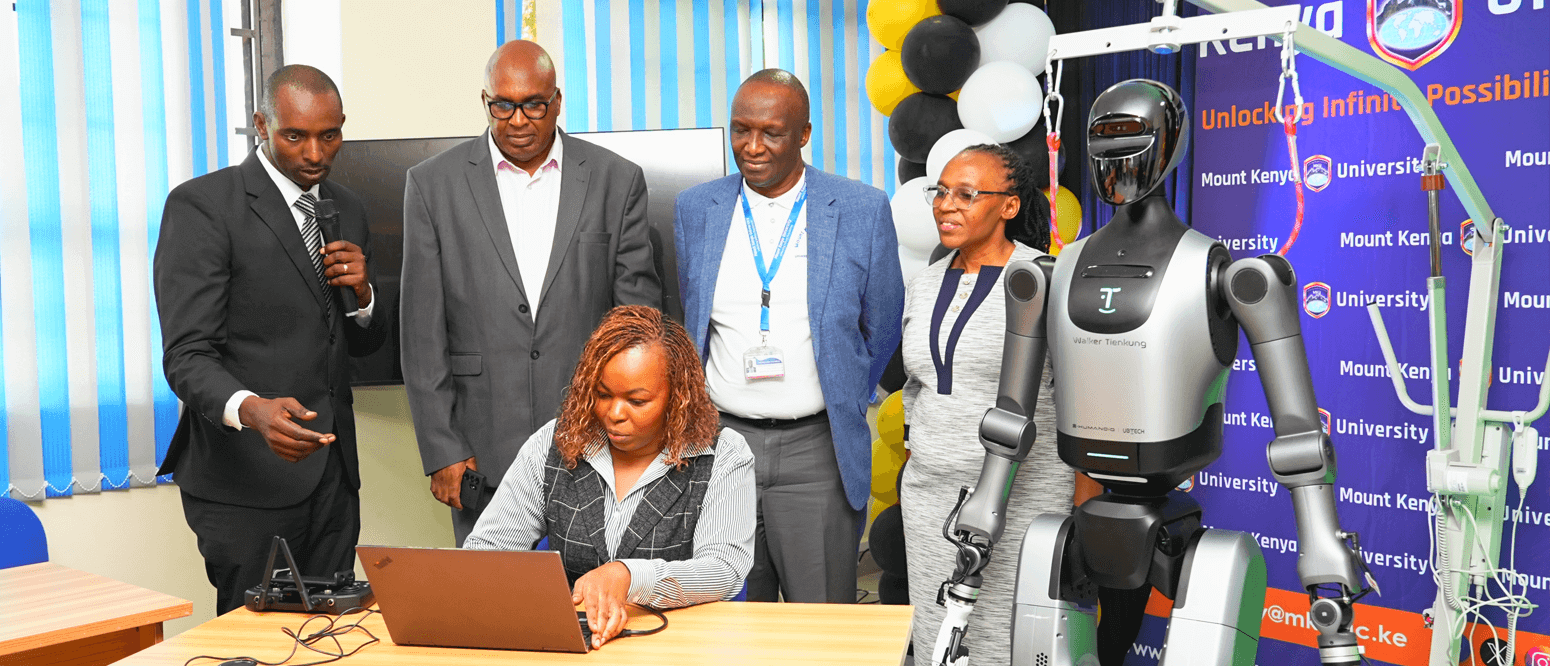
Mount Kenya University has taken a significant stride in advancing engineering, technology, dental sciences, and research by installing new state-of-the-art laboratories, learning facilities, and training equipment. These investments demonstrate the University’s commitment to producing competent, innovative, and industry-ready graduates across key academic disciplines.
Engineering and Technology Lab Upgrades
The School of Engineering, Energy and the Built Environment has received modern laboratory equipment to enhance practical learning and innovation:
- Digital Electronics Lab: Students gain skills in circuit design, diagnosis, and system analysis, building a strong foundation for careers in electronics and embedded systems.
- Renewable Energy Lab: Supports experiments in solar and wind energy technologies, preparing learners for the growing sustainable energy sector.
- Electrical Installation & Machines Lab: Provides hands-on training in industrial wiring, motor installation, and electrical systems operation.
These additions complement the Instrumentation and Control Lab, acquired earlier in the year, which enhances expertise in automation, industrial monitoring, and process control.
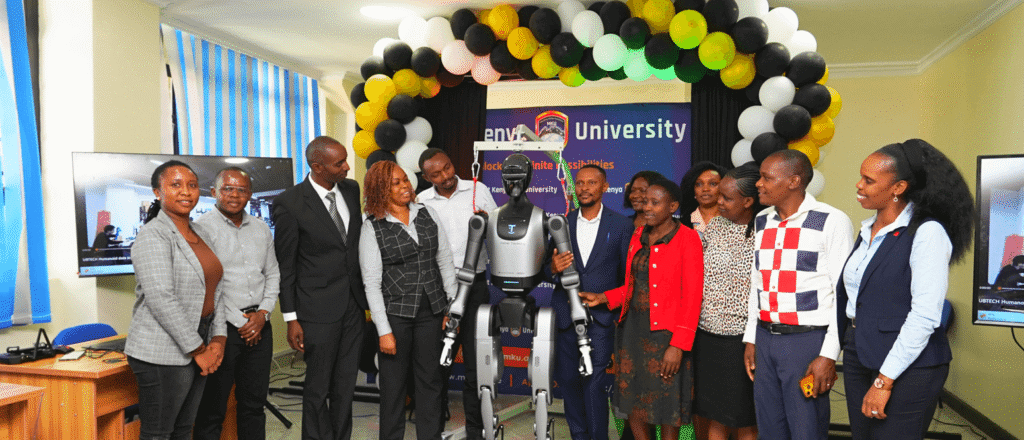
Robotics & AI and Immersive Technologies Lab Launched
MKU has established a pioneering Robotics & AI and Immersive Technologies Lab, marking a major milestone in engineering and computational innovation. During the official handover, Prof. Simon Gicharu, MKU Chairman of the Board of Directors, reaffirmed MKU’s dedication to empowering learners through modern technology and platforms for innovation.
“We are committed to providing our students with the best learning environment by equipping them with modern, industry-relevant technology that will enable them to learn, innovate, and create new solutions. The Walker S2 humanoid robot—now fully installed—will offer hands-on learning experiences as part of the newly launched AI Robotics Lab.”
He also revealed that the University is considering setting up a dedicated innovation grant to fund outstanding artificial intelligence projects, enabling students to turn ideas into real prototypes through the MKU Incubation and Innovation Hub.
Prof. Gicharu further challenged students to actively join hackathons, noting that such competitions sharpen skills, build problem-solving capacity, and prepare learners for real-world innovation environments.
The Lab will support:
- Robotics and AI training
- Human–robot interaction research
- Immersive and XR innovation
- Faculty development
- Student prototyping and product development
- National STEM outreach and partnerships
New Phantom Head Skills Laboratory for Dental Training
In the College of Health Sciences, MKU has installed the Phantom Head Skills Laboratory, a core component of preclinical dental training. Through this facility, students will:
- Practice dental procedures in a controlled and risk-free environment
- Develop clinical precision, dexterity, and hand–eye coordination
- Understand standard operating procedures before handling real patients
Skills taught in this lab form the foundation of lifelong dental practice, ensuring professional readiness upon graduation.
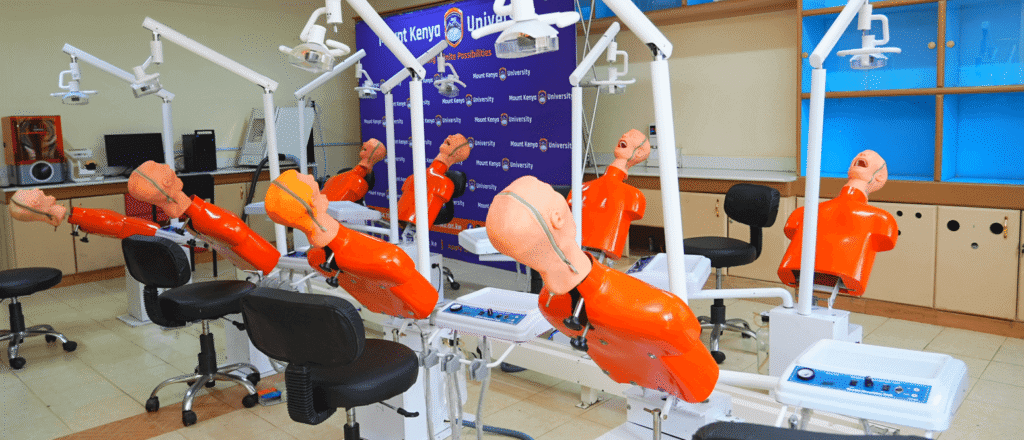
Beyond student learning, the lab will support:
- Continuous professional development for registered clinicians
- Skills refreshers and training in emerging dental technologies
- The phasing out of outdated clinical techniques, as required by regulatory compliance
The Dental Department has celebrated the installation as a major milestone in modernizing dental education at MKU.
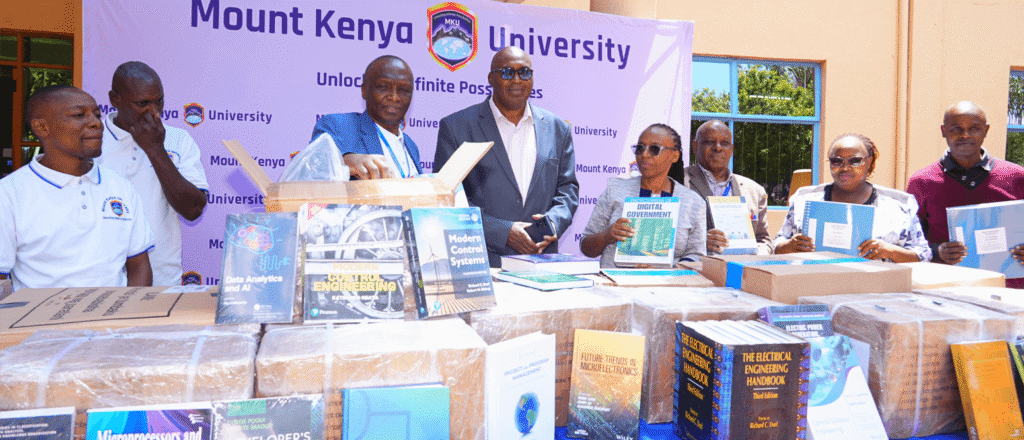
Library Expansion and Academic Resources Growth
The MKU Library has also received a major boost with the acquisition of new books and scholarly learning materials from reputable international and local publishers.
During the handover, Vice-Chancellor Prof. Deogratius Jaganyi encouraged faculty members to continue publishing in peer-reviewed journals and authoring academic books as a way of expanding scholarly knowledge and sharing their contributions with the global academic community.
Through these initiatives, MKU demonstrates a strong commitment to hands-on learning, applied research, and technology-driven innovation. Students now have access to world-class facilities that foster creativity, practical skills, and the ability to solve real-world challenges, ensuring they are prepared to lead in a rapidly evolving global landscape.
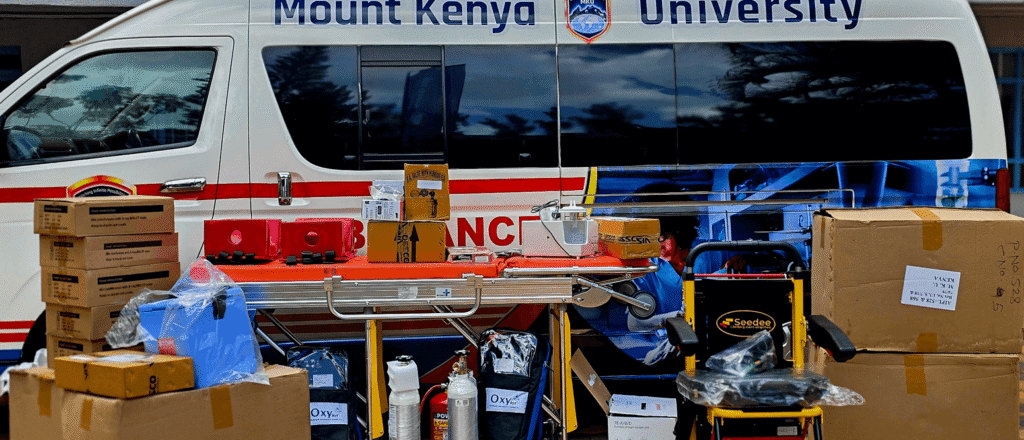
The Vice-Chancellor also received new equipment for the University ambulance, aimed at enhancing service delivery and ensuring rapid access to healthcare. The upgraded ambulance will support the University Clinic in providing efficient medical services to students.











